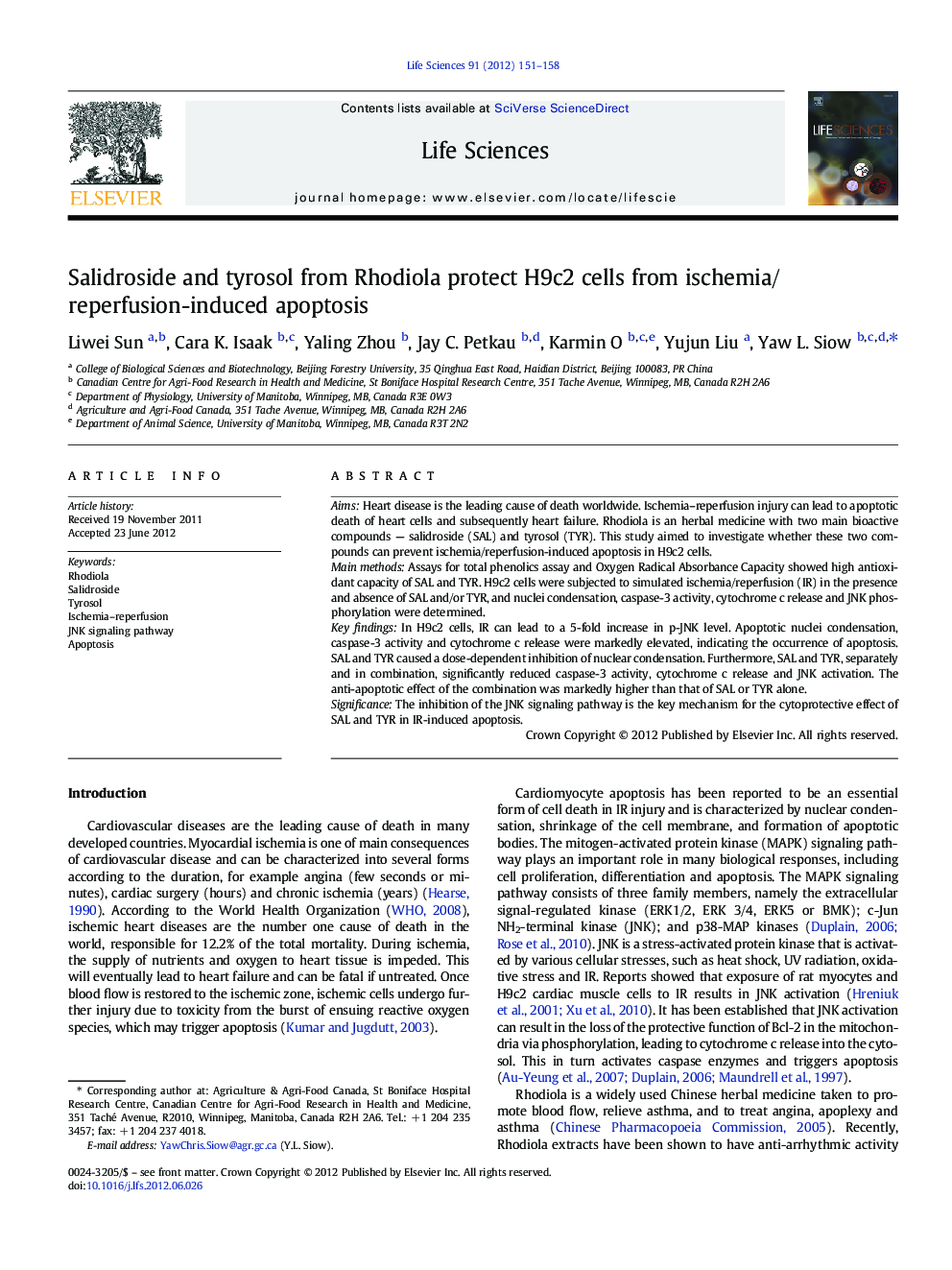| کد مقاله | کد نشریه | سال انتشار | مقاله انگلیسی | نسخه تمام متن |
|---|---|---|---|---|
| 2551747 | 1560646 | 2012 | 8 صفحه PDF | دانلود رایگان |

AimsHeart disease is the leading cause of death worldwide. Ischemia–reperfusion injury can lead to apoptotic death of heart cells and subsequently heart failure. Rhodiola is an herbal medicine with two main bioactive compounds — salidroside (SAL) and tyrosol (TYR). This study aimed to investigate whether these two compounds can prevent ischemia/reperfusion-induced apoptosis in H9c2 cells.Main methodsAssays for total phenolics assay and Oxygen Radical Absorbance Capacity showed high antioxidant capacity of SAL and TYR. H9c2 cells were subjected to simulated ischemia/reperfusion (IR) in the presence and absence of SAL and/or TYR, and nuclei condensation, caspase-3 activity, cytochrome c release and JNK phosphorylation were determined.Key findingsIn H9c2 cells, IR can lead to a 5-fold increase in p-JNK level. Apoptotic nuclei condensation, caspase-3 activity and cytochrome c release were markedly elevated, indicating the occurrence of apoptosis. SAL and TYR caused a dose-dependent inhibition of nuclear condensation. Furthermore, SAL and TYR, separately and in combination, significantly reduced caspase-3 activity, cytochrome c release and JNK activation. The anti-apoptotic effect of the combination was markedly higher than that of SAL or TYR alone.SignificanceThe inhibition of the JNK signaling pathway is the key mechanism for the cytoprotective effect of SAL and TYR in IR-induced apoptosis.
Journal: Life Sciences - Volume 91, Issues 5–6, 4 September 2012, Pages 151–158